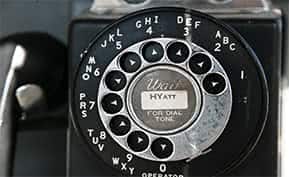Will Your Sales Team Pass the Flinch Test?
By Lee B. Salz – President of Sales Dodo, LLC
There is a little test that professional buyers give to every sales person. It is a test to see if they are confident in the price they presented. They call it the flinch test. Will you pass the test?
After a lengthy buying process, the time has come to submit pricing. Countless hours are spent formulating a glorious proposal that details your comprehensive solution. Proud of your accomplishment, you present the proposal to the buyer. Skipping the sections about your company and your solution, she flips right to the pricing page. “Oh my gosh, I didn’t think it would be this expensive!”
What happens next determines whether or not you will get the business. When I say “get” the business, there are two sides to consider. The obvious is whether or not the prospect will award the business to you. The less obvious is whether your company will agree to their desired price level. The negotiation may get to a point where the prospect says they want to award you the business, but at a price unacceptable to your company. If you’ve ever been there, it is painful to say the least. As a sales person, you have a responsibility to facilitate the process in a way that leads to a mutually acceptable conclusion.
There is a trade secret in the purchasing world. They call it the “flinch test.” This is the test Procurement Agents and other professional buyers give to sales people when they provide pricing. “Wow! You are 25% higher than your competition.” These pros are trained to react with surprise so that they can see if the sales person is confident in the price they have put forward. It is nothing more than a straightforward negotiation tactic. Often times, they overstate the price difference such that you can do some quick math and see that the differential is bogus. I can recall a time where I was told that we were 50% higher than the competition. When I reviewed the numbers, this meant that the competitor was losing 18% based on fixed costs that we both had. It was highly unlikely that the competitor was signing up for this kind of an account. When I asked the Procurement Agent about that figure again, he flinched and we ultimately won the business.
The key to passing the flinch test is to respond with confidence in your price. If you don’t believe you are providing a fair, competitive price for the solution, my question is why are you presenting it anyway? One would hope that you have integrity so why present something you don’t believe in?
Some responses that cause you to fail the flinch test.
• What price were you looking for?
• I’ll ask my manager if we can do better.
• How about if I take 10% off?
The reason these are failed responses is that they create trust issues with the prospect. Were you trying to rip them off with the price you presented? One of two things is true. Either you were trying to rip them off or you believe you provided a fair price. What other option is there? Some will say that they were preparing for a negotiation. That’s a fair point; however, it is a terrible negotiation strategy to give the appearance that you will drop your price first moment someone balks. That approach gives the impression that you sought to gouge them.
Most negotiations end at the middle ground. They wanted 5; you wanted 10 and settled at 7.5. That seems logical. However, if you lower your price early, the middle ground is lower. In the same scenario, if you dropped to 8 right off the bat, the middle becomes 6.5. As I mentioned, you have to manage the negotiation such that the middle is not lower than an acceptable price for your company.
Successful sales people have a planned, or dare I say “canned,” response for the flinch test. They don’t expect a prospect to respond with excitement about a price. They anticipate shock and have a process to handle it. Here are their secrets…
1. They set expectations upfront. Early in the buying process, they set the expectation that they are not the low price provider. “To be clear, our company is rarely the low bid, does that mean that we won’t be working together on this project?” If they say no, you are set for the later phases of the process. If they say yes, at least you haven’t invested a ton of time in an account that you won’t win. If you are going to lose, lose early.
2. They don’t flinch! “I’m not surprised by your reaction. I get that a lot. As I mentioned at the outset, we are rarely the low bidder.”
3. They seek to understand. “When you say that you are shocked by the price, which part is surprising? This is the subject of another article of mine which addresses the importance of understanding the prospect’s perspective of price.
4. They reinforce their position. “Since we are rarely the low price provider, what do you think our 1000 clients see that leads them to pay a little more to have us?
Many years ago, I had the opportunity to participate in Procurement Training. Think of it as sales training for buyers. After the session, I had an interesting conversation with the trainer. Here’s what he told me…
“For 25 years, sales people asked me for coaching on the price of their proposal as I was the head of Procurement for my company. I told each one of them the same thing. Provide us with the best price that you feel good about giving and either way, you win. I always got a puzzled expression from that. Let me explain. If we award the business to you at that price, you’re happy. If we award the business to someone else at a lower price, you are happy as well because you wouldn’t have been happy to support the account at that price point.”
To share a little secret, I use the flinch test all the time when I buy. It’s amazing how quickly sales people drop their drawers on price. I bet I’ve saved my family 20% across the board for all of our spending just with that test. It’s no wonder that professional buyers use this. I often wonder how many commission dollars were lost just because they flinched. How may commission dollars have you lost because you flinched?
[Photo courtesy of dnainfo.]





